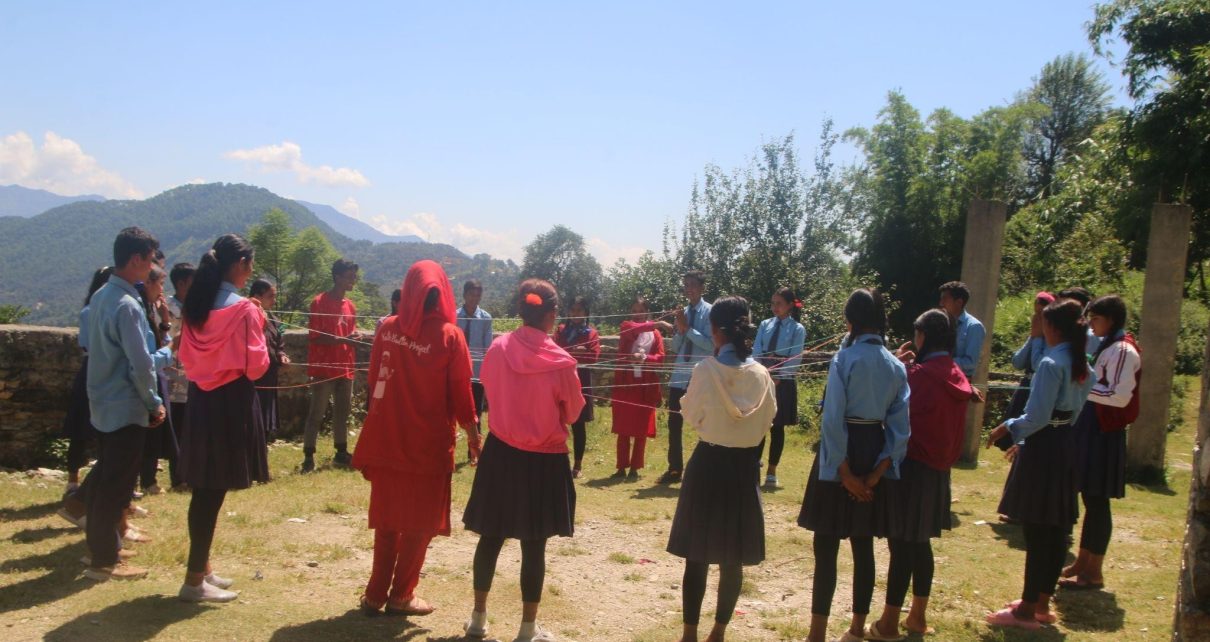
These initiatives were designed to enhance menstrual health and hygiene, sex education, and reproductive health awareness among school students and women in the community. The school-based sessions covered key topics including human anatomy, menstrual hygiene, the use of sustainable menstrual products, and broader issues such as gender equality, rights, and consent. The program also featured hands-on training on the use of menstrual cups, preparation of reusable fabric pads, menstrual cup and promotion of personal hygiene practices.
In past, a significant number of participants adopted menstrual cups, while others chose reusable fabric pads. Notably, boys actively participated in discussions on birth control, consent, and reproductive health, contributing to a more inclusive and supportive environment for menstrual education.
Despite high levels of engagement, the initiative faced challenges, particularly inconsistent attendance, often influenced by traditional beliefs and religious observances. Nonetheless, strong support from school authorities, ward representatives, and Female Community Health Volunteers (FCHVs) played a vital role in reinforcing the program’s impact and acceptance.

Unnati has continued to promote safe and informed menstrual health practices through the distribution of menstrual cups, reusable towels, and soaps. These efforts have proven particularly effective in raising awareness and changing attitudes in the communities of Achham district, Nepal. Feedback from participants indicates a growing acceptance of sustainable menstrual health solutions, emphasizing the importance of ongoing education and the potential for further expansion of the initiative.
The Rato Baltin Project, in particular, has made notable progress over recent years in improving menstrual hygiene management, reproductive health education, and gender equality awareness across multiple regions in Achham. Through a series of well-structured training sessions and consistent follow-up activities, the project successfully engaged students, girls, boys, women, FCHVs, teachers, and other community stakeholders.
The introduction and ongoing use of menstrual cups, especially the Ruby Cup, yielded highly positive results. Participants reported greater comfort, cleanliness, and safety during menstruation, and many went on to recommend the cups to peers, signalling increased awareness and community-level advocacy for sustainable menstrual practices.
Follow-up evaluations conducted at 3, 6, and 9-month intervals across various project locations confirmed the continued use and acceptance of menstrual cups. Schoolgirls and women alike highlighted the positive impact on their ability to participate in school and community activities. The initiative also contributed to reducing the prevalence of harmful practices such as Chhaupadi.
While traditional norms and logistical challenges persist in rural areas, the program has garnered strong support from local government bodies, schools, health volunteers, and community leaders. Looking ahead, recommendations for future implementation include meeting the demand for additional fabric pads, offering shorter and more impactful training sessions, and expanding the distribution of hygiene products. Overall, the initiative has been instrumental in raising awareness about sustainable menstrual health practices and empowering women and girls with the knowledge, tools, and confidence to manage menstruation with dignity and autonomy.
.
